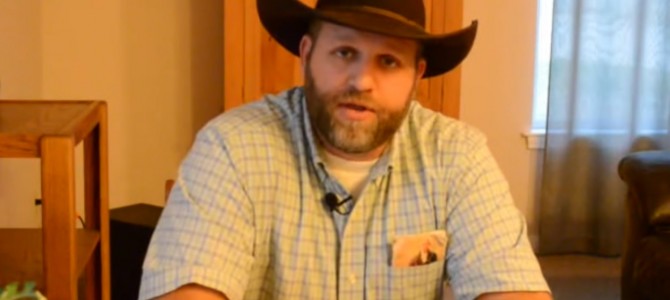As my Cato Institute colleague Randal O’Toole skillfully explained, none of the protagonists in the Oregon standoff really deserve our admiration: the Hammond ranching family misbehaved, the federal government overcharged, and then the Bundy cranks arrived to spray kerosene on the glowing embers.
Libertarian scholars have been showing for years that, as owner of most of the land in the West, the federal government routinely throws around its weight to the detriment of nearby residents, landowners, and those whose livelihoods depend on leases. But many of the resulting disputes are highly fact-bound; they need to be evaluated individually.
After the Hammonds set two fires without proper notice, the feds tossed a whole bunch of charges at them, including an anti-terrorism law that Congress in its wisdom seems to have chosen to apply to arson on federal property generally, even though controlled burns and backfires happen regularly on remote Western lands.
Amid evidence that the Hammonds had not played by the known rules, the government got convictions on two arson counts. The trial judge tried to deviate downward from what he saw as an overly harsh prescribed legal minimum sentence, but the U.S. Department of Justice appealed to the Ninth Circuit and got a full minimum restored, which will require the Hammond father and son to report back to prison. Ken White at Popehat writes that this sequence of events basically represents standard operating procedure for DOJ and the federal courts, even if, as Jacob Sullum argues at Reason, it invites debate about the wisdom of the sentencing minimums.
Unlawful protest occupations of public places and government buildings have long been a familiar part of American public life, and even those not involving arms sometimes have rather serious consequences for the health and well-being of innocent bystanders.
When a hothead Bundy son declared that in response to the Hammonds’ plight he would take over a nearby bird sanctuary as a rallying point for vigilante action by his self-declared militia, the social media Left quickly picked up the theme—despite the lack of any reports “of any casualties, clashes, hostages, or deaths”—as a tick-tock #OregonUnderAttack crisis demanding saturation press coverage, a statement from every presidential candidate, a formal designation of terrorism, and so forth. The Obama administration, which one might have thought deserved applause for handling the last outburst of Bundy folk-law-in-action without a drop of bloodshed, was goaded for not having quelled the rebellion by main force, though it had been practically 24 whole hours.
Aside from the business of not wishing to shed blood, one reason for officials’ hesitation is that initial social-media-driven reports so often turn out to be flawed or incomplete. For example, although Left Twitter endlessly recycled the figure of 150 Bundyites armed for revolution, this morning’s Washington Post reported that while hundreds attended a Burns, Oregon, rally in support of the Hammonds, only “an estimated dozen” split off to join Ammon Bundy in the building takeover, and the family’s own attorney said the Hammonds wanted no part of it. After early reports that the Bundy crew “stormed” the Malheur wildlife refuge headquarters, it turned out the remote installation was “unoccupied” at the time.
In the ordinary calculations of humanity, events like Waco and Ruby Ridge and the Philadelphia MOVE bombing represent a grotesque failure. Despite the spirit of the mob and the ever-present temptation to shoot first, most such situations in our country are resolved with legal consequences for the wrongdoers but not with loss of life and limb. We should be glad of that.









